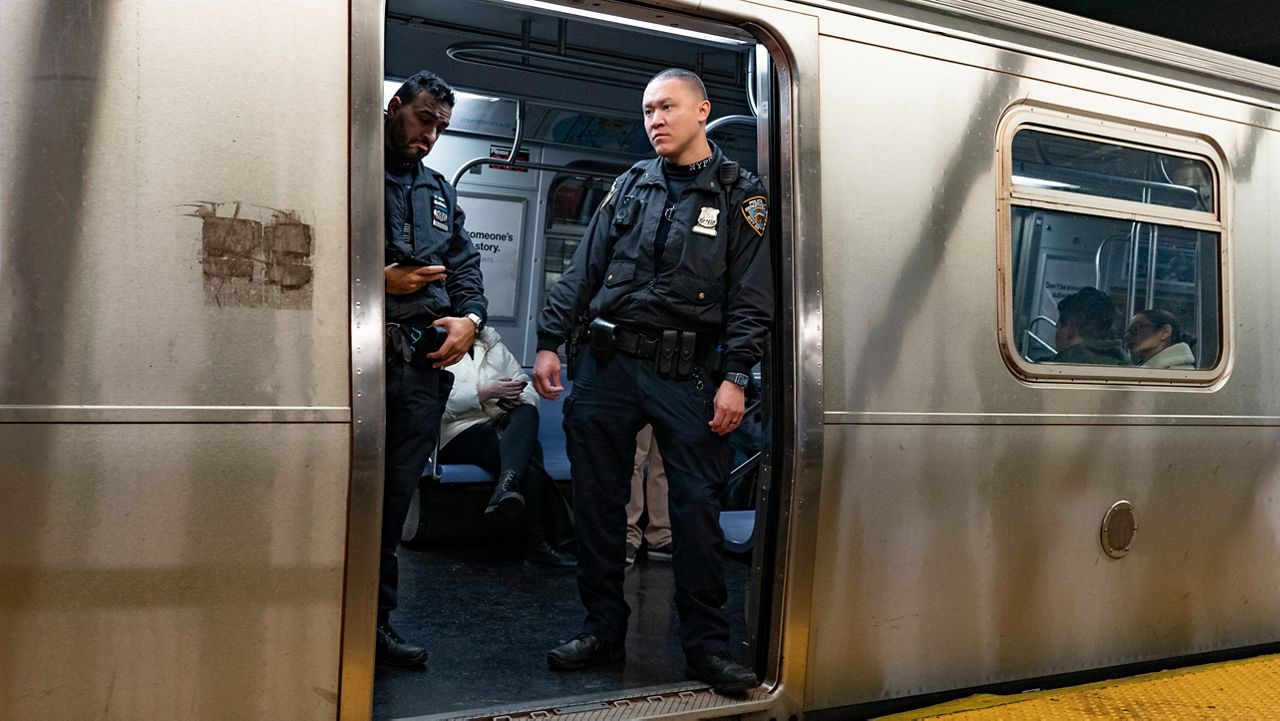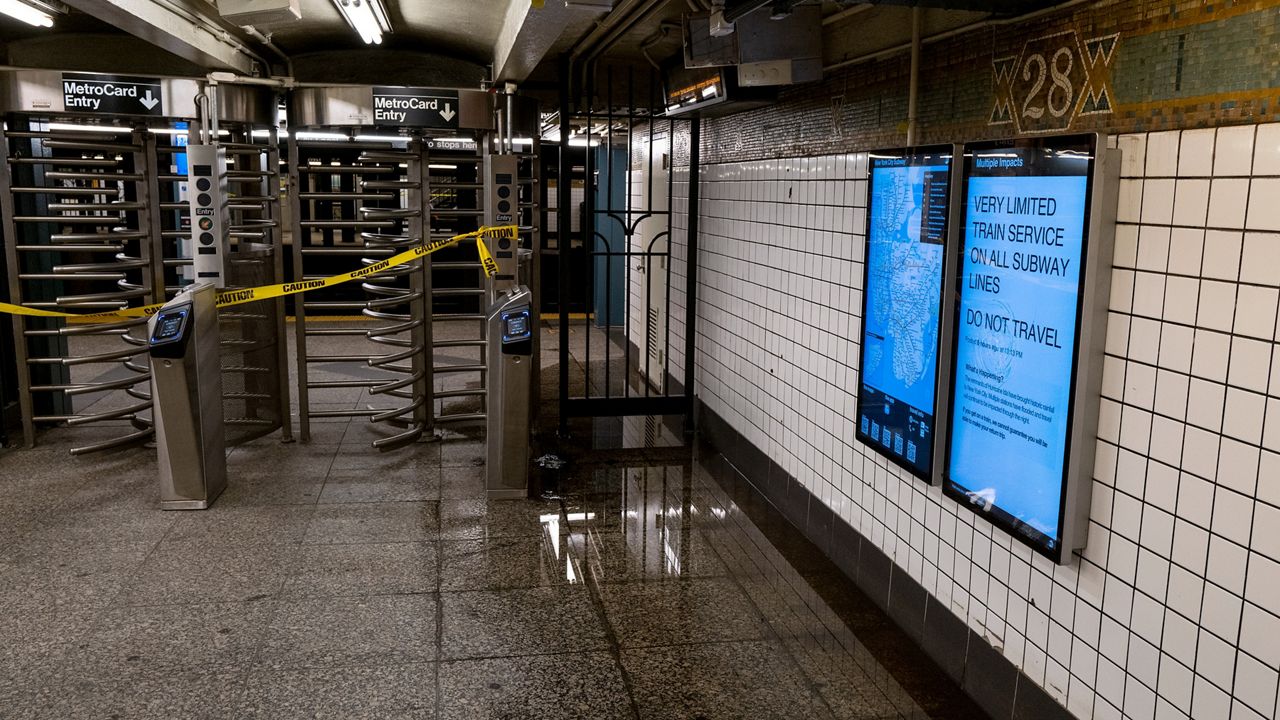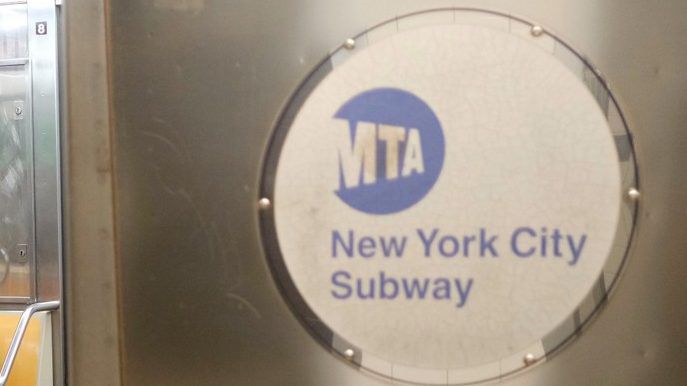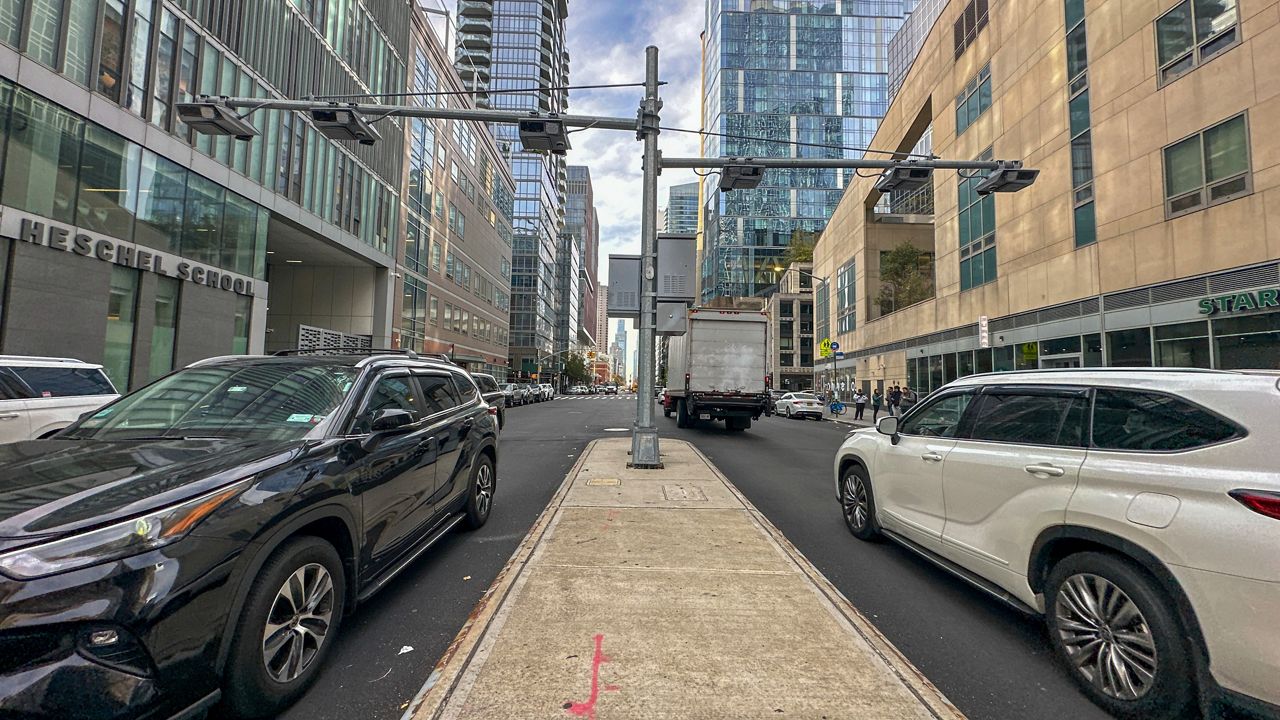The MTA launched a pilot program on Sunday that will make five city bus routes free.
The program, which includes a bus route in each borough, will last six to 12 months, Gov. Kathy Hochul said when she announced the initiative in July.
The routes that were selected for the program are the Bx18 (A and B) in the Bronx, the B60 in Brooklyn, the M116 in Manhattan, the Q4 (local and limited) in Queens and the S46 and S96 on Staten Island.
The program will serve 43,900 daily weekday riders, the MTA said in a press release. It will not include free transfers to other buses or subway lines.
The buses included in the program will have destination signs, onboard digital signs and decals marked "Fare Free," the release said.
The bus routes were selected based on a variety of factors, including "fare evasion, service frequency, available capacity to address potential ridership increases, equity for low-income and economically disadvantaged communities, and access to employment and commercial activity," the release added.
"The MTA carefully selected one route in every borough to study potential benefits and impacts on ridership, operations and other factors, and the buses are ready to roll," Frank Annicaro, New York City Transit's senior vice president of buses, said in a statement Friday.
The launch of the pilot program comes one month after the MTA hiked subway, bus and commuter rail fares. As part of the price hikes, subway and bus fares increased from $2.75 to $2.90 on Aug. 20.
Commuters headed to the bus Sunday on the first day of the new program.
Gerald Robinson has lived in the city for 40 years and travels across the city for his signage business.
He says he wishes more lines were part of the program.
“It’s good, but some lines you have to pay,” Robinson, a commuter, said.
Officials say the lines chosen were based on frequency of service, fare evasions and poverty in nearby neighborhoods among other factors.
Elected leaders and commuters gathered on the M116 route in Harlem and headed on the bus.
“I come here seven days a week. The way the economy is riding the bus without paying, it’s amazing,” Martina Garcia, a commuter, said.
Sen. Michael Gianaris thinks the program has room for improvement.
“Many of us wanted a bigger program. We proposed it and this is what we landed on in the state budget process, but that gives us time to evaluate it. Let the public see what it feels like taking a bus and not having to pay. Free movement for the city get more people on the buses. It will make the buses safer because more people means safer buses and it will make things more affordable in an unaffordable city,” he said on Sunday.
According to officials, 45,000 people use the included routes weekly.
The city’s Independent Budget Office says free buses for all rides would cost the MTA $652 million each year.
Other cities in the country have also introduced free bus service.
Boston and Kansas City implemented similar free bus programs, with those programs resulting in faster commute times.









